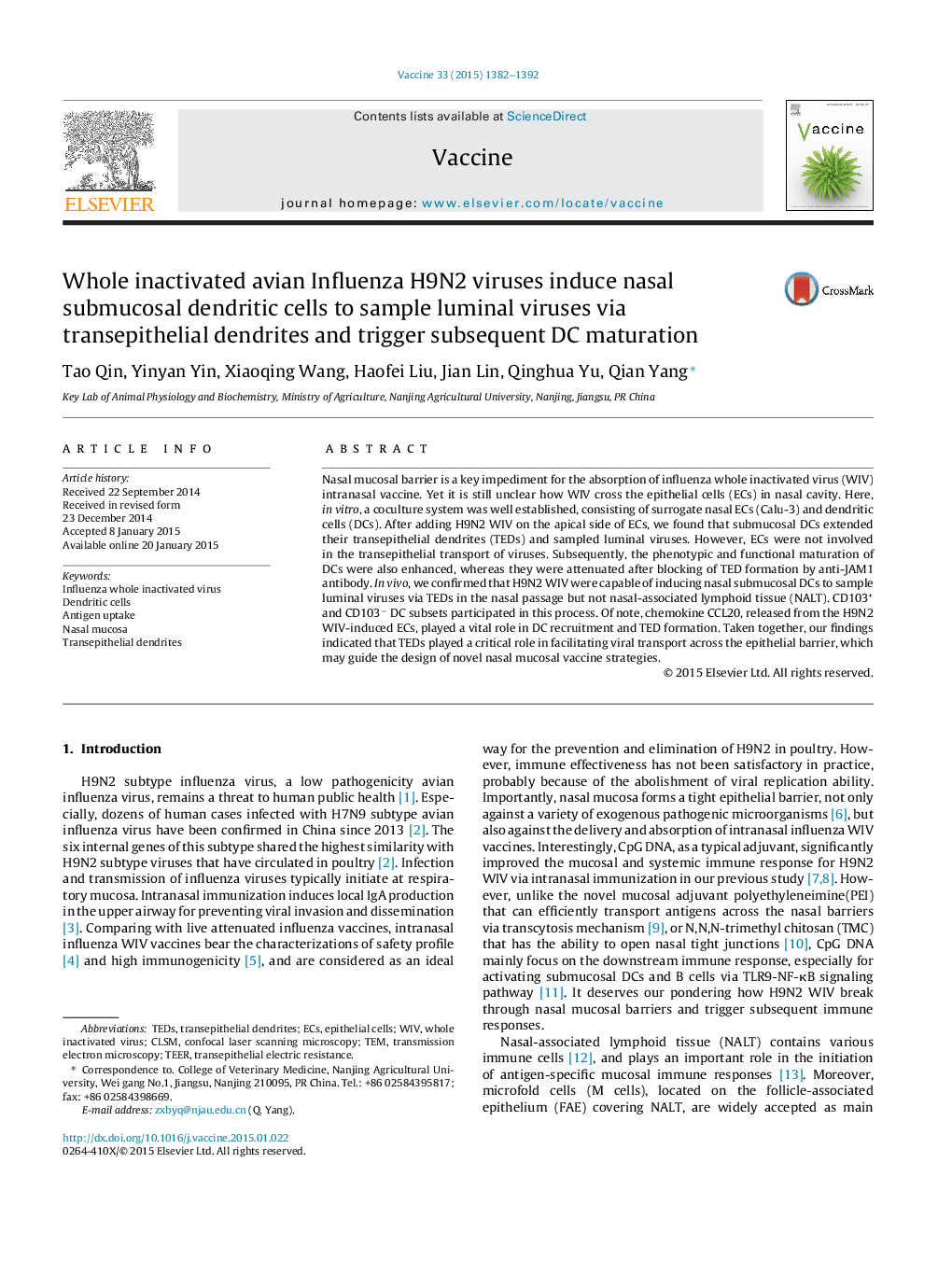| کد مقاله | کد نشریه | سال انتشار | مقاله انگلیسی | نسخه تمام متن |
|---|---|---|---|---|
| 10963895 | 1102695 | 2015 | 11 صفحه PDF | دانلود رایگان |
عنوان انگلیسی مقاله ISI
Whole inactivated avian Influenza H9N2 viruses induce nasal submucosal dendritic cells to sample luminal viruses via transepithelial dendrites and trigger subsequent DC maturation
دانلود مقاله + سفارش ترجمه
دانلود مقاله ISI انگلیسی
رایگان برای ایرانیان
موضوعات مرتبط
علوم زیستی و بیوفناوری
ایمنی شناسی و میکروب شناسی
ایمونولوژی
پیش نمایش صفحه اول مقاله

چکیده انگلیسی
Nasal mucosal barrier is a key impediment for the absorption of influenza whole inactivated virus (WIV) intranasal vaccine. Yet it is still unclear how WIV cross the epithelial cells (ECs) in nasal cavity. Here, in vitro, a coculture system was well established, consisting of surrogate nasal ECs (Calu-3) and dendritic cells (DCs). After adding H9N2 WIV on the apical side of ECs, we found that submucosal DCs extended their transepithelial dendrites (TEDs) and sampled luminal viruses. However, ECs were not involved in the transepithelial transport of viruses. Subsequently, the phenotypic and functional maturation of DCs were also enhanced, whereas they were attenuated after blocking of TED formation by anti-JAM1 antibody. In vivo, we confirmed that H9N2 WIV were capable of inducing nasal submucosal DCs to sample luminal viruses via TEDs in the nasal passage but not nasal-associated lymphoid tissue (NALT). CD103+ and CD103â DC subsets participated in this process. Of note, chemokine CCL20, released from the H9N2 WIV-induced ECs, played a vital role in DC recruitment and TED formation. Taken together, our findings indicated that TEDs played a critical role in facilitating viral transport across the epithelial barrier, which may guide the design of novel nasal mucosal vaccine strategies.
ناشر
Database: Elsevier - ScienceDirect (ساینس دایرکت)
Journal: Vaccine - Volume 33, Issue 11, 10 March 2015, Pages 1382-1392
Journal: Vaccine - Volume 33, Issue 11, 10 March 2015, Pages 1382-1392
نویسندگان
Tao Qin, Yinyan Yin, Xiaoqing Wang, Haofei Liu, Jian Lin, Qinghua Yu, Qian Yang,